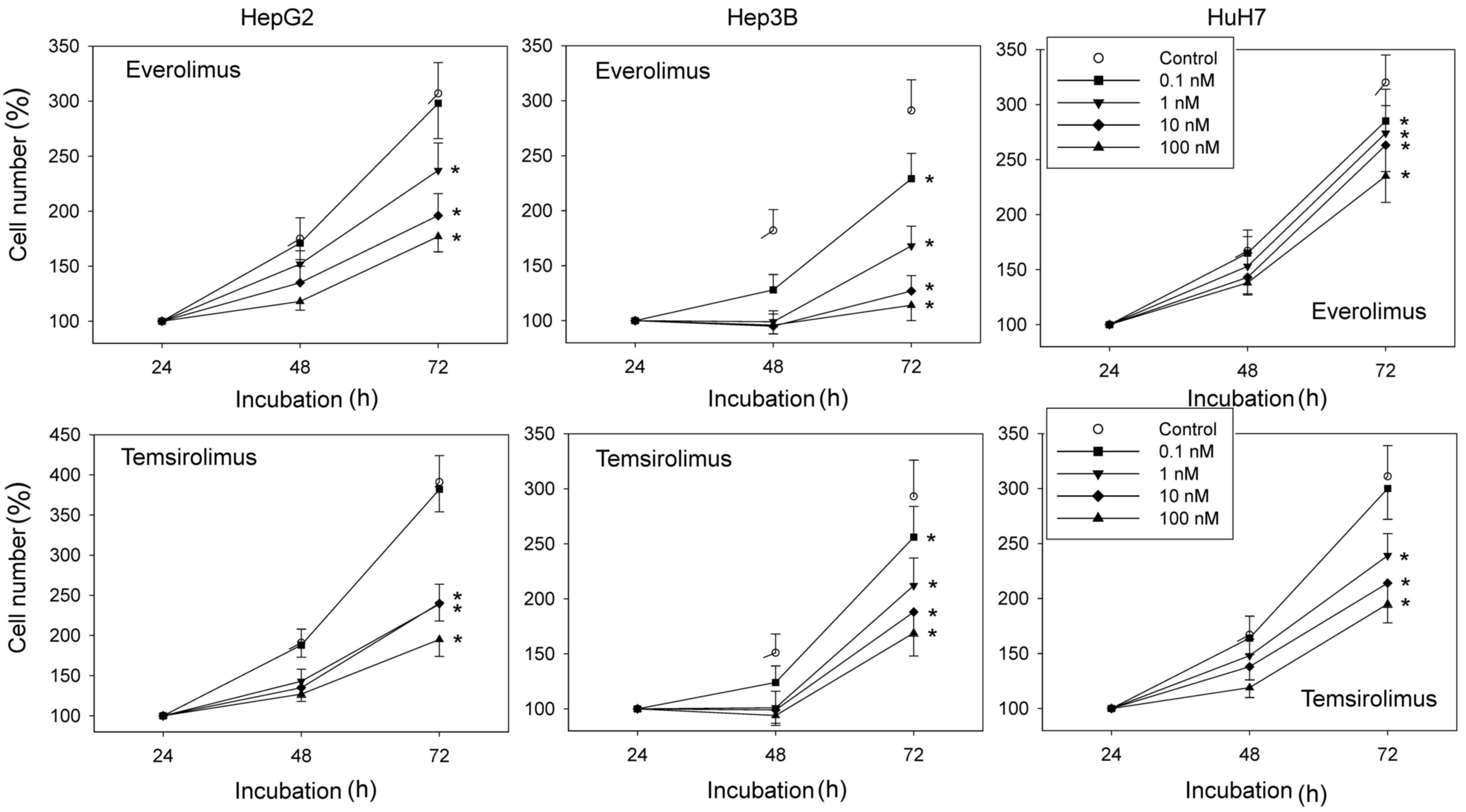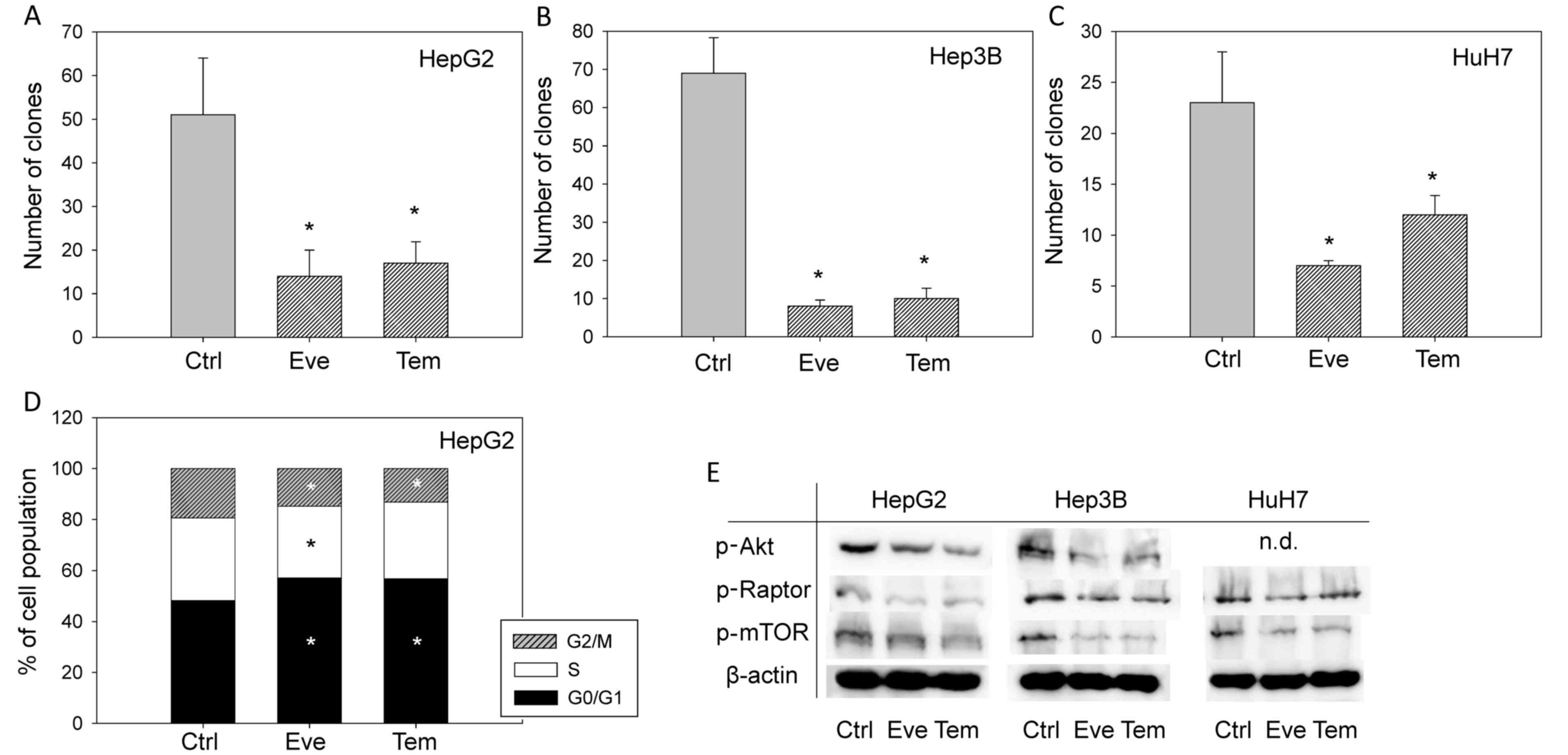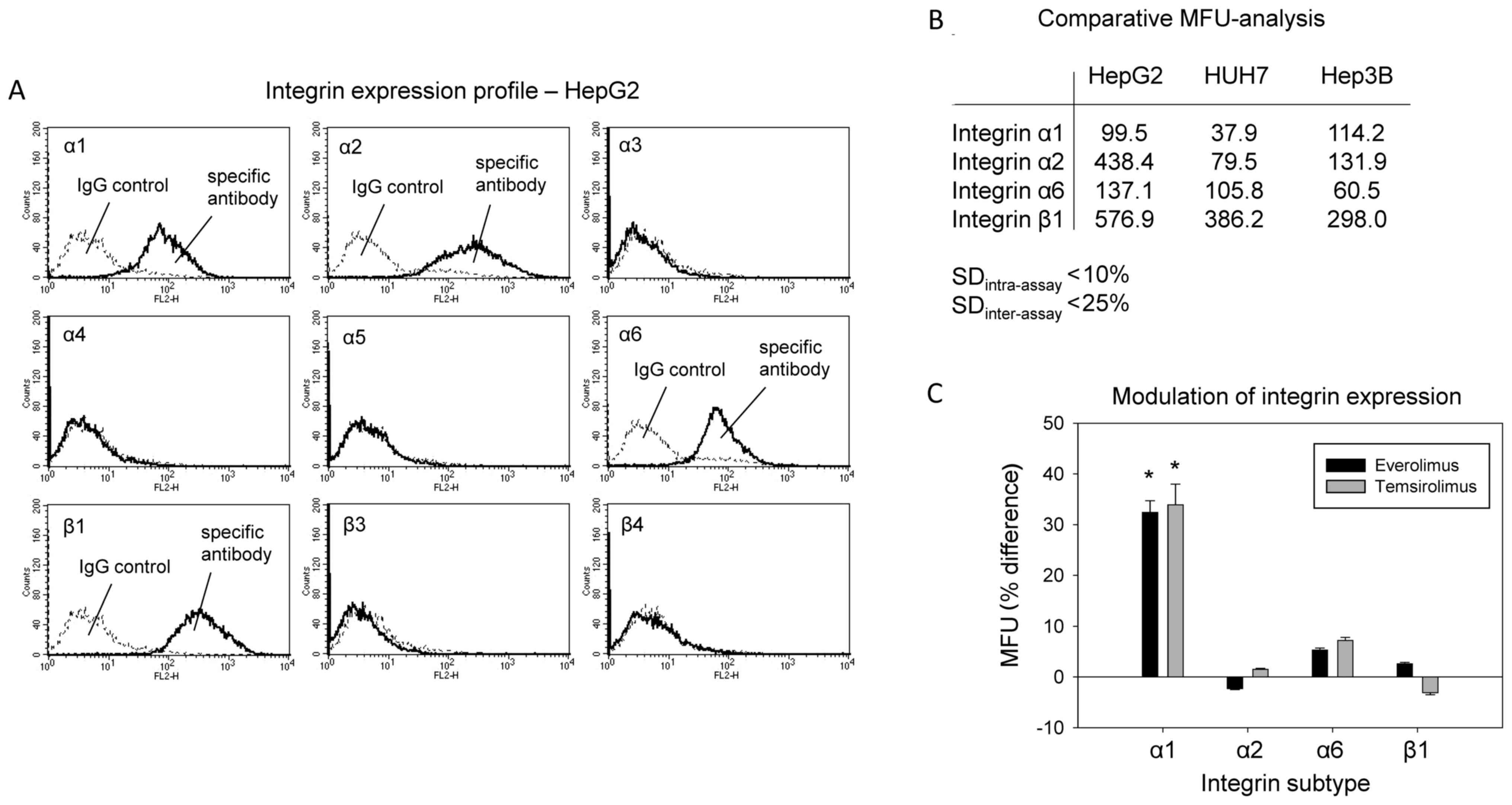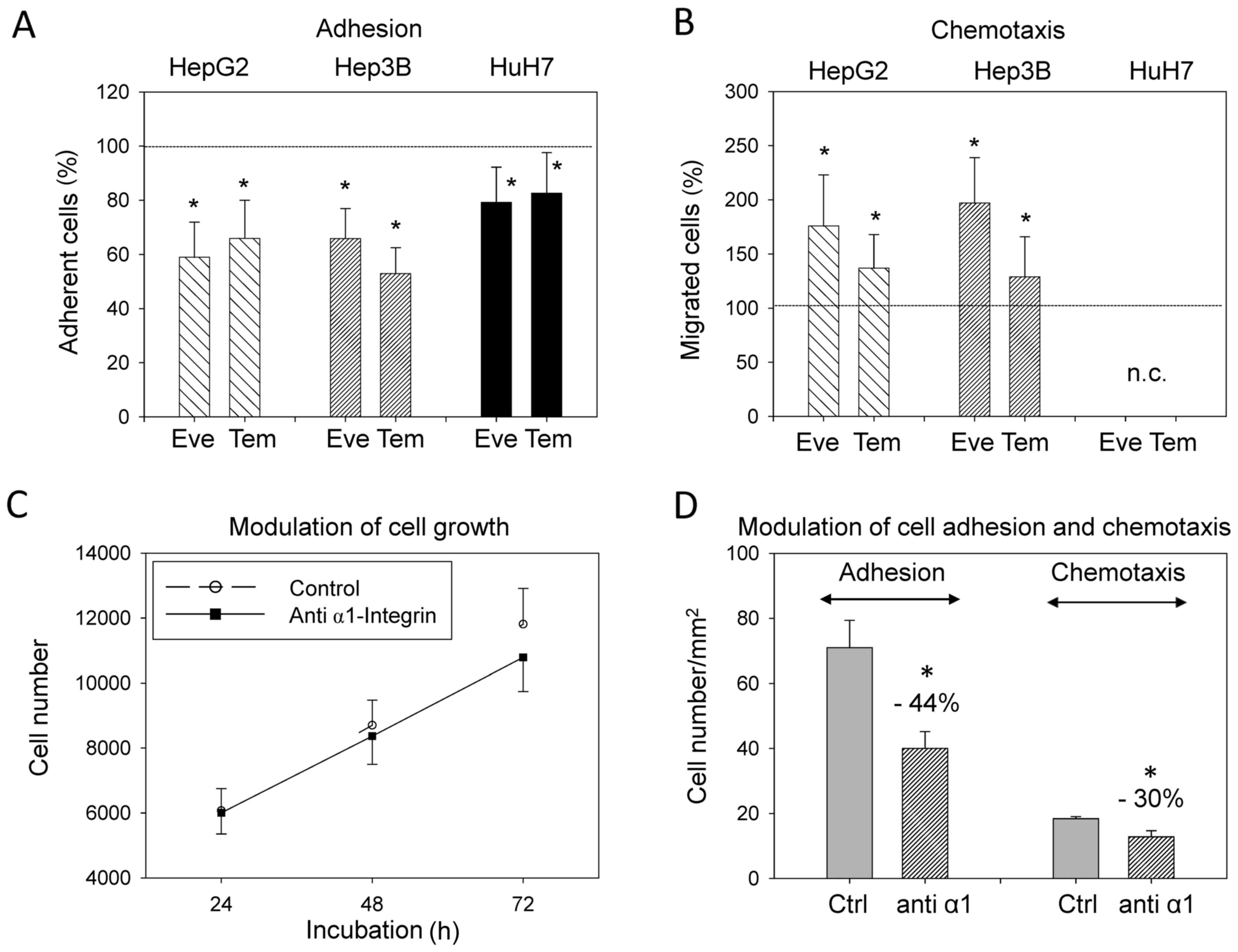|
1
|
Ferlay J, Soerjomataram I, Dikshit R, Eser
S, Mathers C, Rebelo M, Parkin DM, Forman D and Bray F: Cancer
incidence and mortality worldwide: Sources, methods and major
patterns in GLOBOCAN 2012. Int J Cancer. 136:E359–E386. 2015.
View Article : Google Scholar : PubMed/NCBI
|
|
2
|
Llovet JM, Ricci S, Mazzaferro V, Hilgard
P, Gane E, Blanc JF, de Oliveira AC, Santoro A, Raoul JL, Forner A,
et al: Sorafenib in advanced hepatocellular carcinoma. N Engl J
Med. 359:378–390. 2008. View Article : Google Scholar : PubMed/NCBI
|
|
3
|
Cheng AL, Kang YK, Chen Z, Tsao CJ, Qin S,
Kim JS, Luo R, Feng J, Ye S, Yang TS, et al: Efficacy and safety of
sorafenib in patients in the Asia-Pacific region with advanced
hepatocellular carcinoma: A phase III randomised, double-blind,
placebo-controlled trial. Lancet Oncol. 10:25–34. 2009. View Article : Google Scholar : PubMed/NCBI
|
|
4
|
Abou-Alfa GK, Schwartz L, Ricci S, Amadori
D, Santoro A, Figer A, De Greve J, Douillard JY, Lathia C, Schwartz
B, et al: Phase II study of sorafenib in patients with advanced
hepatocellular carcinoma. J Clin Oncol. 24:4293–4300. 2006.
View Article : Google Scholar : PubMed/NCBI
|
|
5
|
Hu J, Che L, Li L, Pilo MG, Cigliano A,
Ribback S, Li X, Latte G, Mela M, Evert M, et al: Co-activation of
AKT and c-Met triggers rapid hepatocellular carcinoma development
via the mTORC1/FASN pathway in mice. Sci Rep. 6:204842016.
View Article : Google Scholar : PubMed/NCBI
|
|
6
|
Ewald F, Nörz D, Grottke A, Bach J,
Herzberger C, Hofmann BT, Nashan B and Jücker M: Vertical targeting
of AKT and mTOR as well as dual targeting of AKT and MEK signaling
is synergistic in hepatocellular carcinoma. J Cancer. 6:1195–1205.
2015. View Article : Google Scholar : PubMed/NCBI
|
|
7
|
Zhou L, Huang Y, Li J and Wang Z: The mTOR
pathway is associated with the poor prognosis of human
hepatocellular carcinoma. Med Oncol. 27:255–261. 2010. View Article : Google Scholar : PubMed/NCBI
|
|
8
|
Najjar YG and Rini BI: Novel agents in
renal carcinoma: A reality check. Ther Adv Med Oncol. 4:183–194.
2012. View Article : Google Scholar : PubMed/NCBI
|
|
9
|
Zhu AX, Abrams TA, Miksad R, Blaszkowsky
LS, Meyerhardt JA, Zheng H, Muzikansky A, Clark JW, Kwak EL, Schrag
D, et al: Phase 1/2 study of everolimus in advanced hepatocellular
carcinoma. Cancer. 117:5094–5102. 2011. View Article : Google Scholar : PubMed/NCBI
|
|
10
|
Zhu AX, Kudo M, Assenat E, Cattan S, Kang
YK, Lim HY, Poon RT, Blanc JF, Vogel A, Chen CL, et al: Effect of
everolimus on survival in advanced hepatocellular carcinoma after
failure of sorafenib: The EVOLVE-1 randomized clinical trial. JAMA.
312:57–67. 2014. View Article : Google Scholar : PubMed/NCBI
|
|
11
|
Yeo W, Chan SL, Mo FK, Chu CM, Hui JW,
Tong JH, Chan AW, Koh J, Hui EP, Loong H, et al: Phase I/II study
of temsirolimus for patients with unresectable Hepatocellular
Carcinoma (HCC)- a correlative study to explore potential
biomarkers for response. BMC Cancer. 15:3952015. View Article : Google Scholar : PubMed/NCBI
|
|
12
|
Cho J, Lee J, Kim J, Kim ST, Lee S, Kim
SY, Ha SY, Park CK and Lim HY: Loss of tuberous sclerosis complex 2
(TSC2) as a predictive biomarker of response to mTOR inhibitor
treatment in patients with hepatocellular carcinoma. Transl Oncol.
9:466–471. 2016. View Article : Google Scholar : PubMed/NCBI
|
|
13
|
Kelley RK, Nimeiri HS, Munster PN, Vergo
MT, Huang Y, Li CM, Hwang J, Mulcahy MF, Yeh BM, Kuhn P, et al:
Temsirolimus combined with sorafenib in hepatocellular carcinoma: A
phase I dose-finding trial with pharmacokinetic and biomarker
correlates. Ann Oncol. 24:1900–1907. 2013. View Article : Google Scholar : PubMed/NCBI
|
|
14
|
Koeberle D, Dufour JF, Demeter G, Li Q,
Ribi K, Samaras P, Saletti P, Roth AD, Horber D, Buehlmann M, et
al: Sorafenib with or without everolimus in patients with advanced
hepatocellular carcinoma (HCC): A randomized multicenter,
multinational phase II trial (SAKK 77/08 and SASL 29). Ann Oncol.
27:856–861. 2016. View Article : Google Scholar : PubMed/NCBI
|
|
15
|
Grabinski N, Ewald F, Hofmann BT, Staufer
K, Schumacher U, Nashan B and Jücker M: Combined targeting of AKT
and mTOR synergistically inhibits proliferation of hepatocellular
carcinoma cells. Mol Cancer. 11:852012. View Article : Google Scholar : PubMed/NCBI
|
|
16
|
Zhou Q, Wong CH, Lau CP, Hui CW, Lui VW,
Chan SL and Yeo W: Enhanced antitumor activity with combining
effect of mTOR inhibition and microtubule stabilization in
hepatocellular carcinoma. Int J Hepatol. 2013:1038302013.
View Article : Google Scholar : PubMed/NCBI
|
|
17
|
Zhou Q, Lui VW, Lau CP, Cheng SH, Ng MH,
Cai Y, Chan SL and Yeo W: Sustained antitumor activity by
co-targeting mTOR and the microtubule with temsirolimus/vinblastine
combination in hepatocellular carcinoma. Biochem Pharmacol.
83:1146–1158. 2012. View Article : Google Scholar : PubMed/NCBI
|
|
18
|
Kim JO, Kim KH, Song IS, Cheon KS, Kim OH,
Lee SC, Lee SK and Kim SJ: Potentiation of the anticancer effects
of everolimus using a dual mTORC1/2 inhibitor in hepatocellular
carcinoma cells. Oncotarget. 8:2936–2948. 2017.PubMed/NCBI
|
|
19
|
Chan SL, Wong CH, Lau CP, Zhou Q, Hui CW,
Lui VW, Ma BB, Chan AT and Yeo W: Preclinical evaluation of
combined TKI-258 and RAD001 in hepatocellular carcinoma. Cancer
Chemother Pharmacol. 71:1417–1425. 2013. View Article : Google Scholar : PubMed/NCBI
|
|
20
|
Aden DP, Fogel A, Plotkin S, Damjanov I
and Knowles BB: Controlled synthesis of HBsAg in a differentiated
human liver carcinoma-derived cell line. Nature. 282:615–616. 1979.
View Article : Google Scholar : PubMed/NCBI
|
|
21
|
Pivonello C, Negri M, De Martino MC,
Napolitano M, de Angelis C, Provvisiero DP, Cuomo G, Auriemma RS,
Simeoli C, Izzo F, et al: The dual targeting of insulin and
insulin-like growth factor 1 receptor enhances the mTOR
inhibitor-mediated antitumor efficacy in hepatocellular carcinoma.
Oncotarget. 7:9718–9731. 2016. View Article : Google Scholar : PubMed/NCBI
|
|
22
|
Kirstein MM, Boukouris AE, Pothiraju D,
Buitrago-Molina LE, Marhenke S, Schütt J, Orlik J, Kühnel F,
Hegermann J, Manns MP, et al: Activity of the mTOR inhibitor
RAD001, the dual mTOR and PI3-kinase inhibitor BEZ235 and the
PI3-kinase inhibitor BKM120 in hepatocellular carcinoma. Liver Int.
33:780–793. 2013. View Article : Google Scholar : PubMed/NCBI
|
|
23
|
Gao Y, Lin LP, Zhu CH, Chen Y, Hou YT and
Ding J: Growth arrest induced by C75, A fatty acid synthase
inhibitor, was partially modulated by p38 MAPK but not by p53 in
human hepatocellular carcinoma. Cancer Biol Ther. 5:978–985. 2006.
View Article : Google Scholar : PubMed/NCBI
|
|
24
|
Gnainsky Y, Spira G, Paizi M, Bruck R,
Nagler A, Genina O, Taub R, Halevy O and Pines M: Involvement of
the tyrosine phosphatase early gene of liver regeneration (PRL-1)
in cell cycle and in liver regeneration and fibrosis effect of
halofuginone. Cell Tissue Res. 324:385–394. 2006. View Article : Google Scholar : PubMed/NCBI
|
|
25
|
Liu X, Tian H, Li H, Ge C, Zhao F, Yao M
and Li J: Derivate isocorydine (d-ICD) suppresses migration and
invasion of hepatocellular carcinoma cell by downregulating ITGA1
expression. Int J Mol Sci. 18:5142017. View Article : Google Scholar :
|
|
26
|
Chen X, Wang H, Liao HJ, Hu W, Gewin L,
Mernaugh G, Zhang S, Zhang ZY, Vega-Montoto L, Vanacore RM, et al:
Integrin-mediated type II TGF-β receptor tyrosine dephosphorylation
controls SMAD-dependent profibrotic signaling. J Clin Invest.
124:3295–3310. 2014. View
Article : Google Scholar : PubMed/NCBI
|
|
27
|
Xia W, Lo CM, Poon RYC, Cheung TT, Chan
ACY, Chen L, Yang S, Tsao GSW and Wang XQ: Smad inhibitor induces
CSC differentiation for effective chemosensitization in cyclin D1-
and TGF-β/Smad-regulated liver cancer stem cell-like cells.
Oncotarget. 8:38811–38824. 2017.PubMed/NCBI
|
|
28
|
Chen A, Beetham H, Black MA, Priya R,
Telford BJ, Guest J, Wiggins GA, Godwin TD, Yap AS and Guilford PJ:
E-cadherin loss alters cytoskeletal organization and adhesion in
non-malignant breast cells but is insufficient to induce an
epithelial-mesenchymal transition. BMC Cancer. 14:5522014.
View Article : Google Scholar : PubMed/NCBI
|
|
29
|
Gui GP, Wells CA, Browne PD, Yeomans P,
Jordan S, Puddefoot JR, Vinson GP and Carpenter R: Integrin
expression in primary breast cancer and its relation to axillary
nodal status. Surgery. 117:102–108. 1995. View Article : Google Scholar : PubMed/NCBI
|
|
30
|
Gilhar A, Ullmann Y, Kalish RS, Berkutski
T, Azizi E and Bank I: Favourable melanoma prognosis associated
with the expression of the tumour necrosis factor receptor and the
alpha1beta1 integrin: A preliminary report. Melanoma Res.
7:486–495. 1997. View Article : Google Scholar : PubMed/NCBI
|
|
31
|
Finn RS: Current and future treatment
strategies for patients with advanced hepatocellular carcinoma:
Role of mTOR inhibition. Liver Cancer. 1:247–256. 2012. View Article : Google Scholar : PubMed/NCBI
|
|
32
|
Ashworth RE and Wu J: Mammalian target of
rapamycin inhibition in hepatocellular carcinoma. World J Hepatol.
6:776–782. 2014. View Article : Google Scholar : PubMed/NCBI
|
|
33
|
Chen BW, Chen W, Liang H, Liu H, Liang C,
Zhi X, Hu LQ, Yu XZ, Wei T, Ma T, et al: Inhibition of mTORC2
induces cell-cycle arrest and enhances the cytotoxicity of
doxorubicin by suppressing MDR1 expression in HCC cells. Mol Cancer
Ther. 14:1805–1815. 2015. View Article : Google Scholar : PubMed/NCBI
|


















